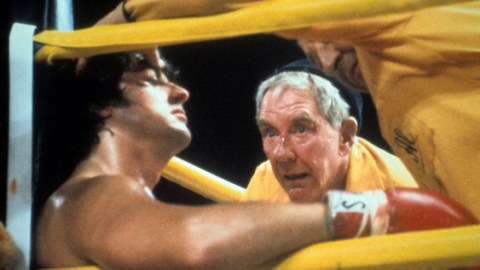Why Some of Us Throw in the Towel While Others Get Back Up

When faced with a disappointment, how willing are you to brush yourself off and start over again? A new study out of Rutgers, and published in the journal Neuron, presents the latest evidence regarding how we bounce back from setbacks. It shows that there is a correlation between our willingness to persevere and how much control we feel we have over the situation. Those who feel they have no control are much more likely to give up, and those who feel they have some control are more likely to keep going.
The study followed college students and observed their reactions to failing a test. Students that saw ways they could improve — studying harder, getting more sleep the night before, taking better notes — stayed in the school and (literally) stayed the course. But students who saw their failure as out of their control — “the professor is a jerk,” “I was never good at this subject anyway,” “the test was unfair” — tended to either drop the course, and in some cases drop out of school. If this is true of us when we are in class, how does it play out in the rest of our lives?
Previously, I was of a very “Me Vs. The World” mindset. Problems were things that happened to me. They were external events I had no control over. This mindset did not serve me well, and resulted in me frequently throwing in the towel before I even gave myself a chance. After a great deal of therapy and a serious meditation practice, I began to see what control I do have over difficulties and setbacks. I stopped taking it so personally. For example, I have ADHD. I can’t control that, but I can control how I respond to it. I exercise and meditate daily, am responsible about taking my medication, and set up systems that make difficult tasks easier for me to accomplish. I was born with impaired executive functioning and a hyperactive mind, but I don’t take my thoughts quite so seriously. They are not personal. Once I realized the control I can have over this setback, I became exponentially happier and was able to persevere through other setbacks in my life.
So how do we do this? When we’re knocked out and they’re counting to 10, how do we find the strength toRocky II our lives? A fascinating study published in Science Magazine has several suggestions. The ability to cognitively reframe a negative event by seeing the positive aspects is hugely helpful. To reuse my ADHD example, the disorder offers some setbacks, but it has also helped me creatively and made me more resilient. That’s cognitive reframing. Also of importance is a strong social circle (which I’ve previously written about), people with whom you can really talk things through. Having a network of friends who are positive and healthy can make you more positive and healthy.
Failure is, as they say, the best way to learn. It’s unavoidable, and that’s really okay. It gives us an opportunity to grow and better ourselves. The more epic the fail, the more epic the win. Maybe then we can all be a little more like that awful Chumbawamba song.
PHOTO CREDIT: United Artists/Moviepix
—
Lori Chandler is a writer and comedian living in Brooklyn, NY. She has been published in The New York Times and on CollegeHumor. You can follow her on Twitter @LilBoodleChild to keep up with her latest pieces, performance dates, and wry observations.





